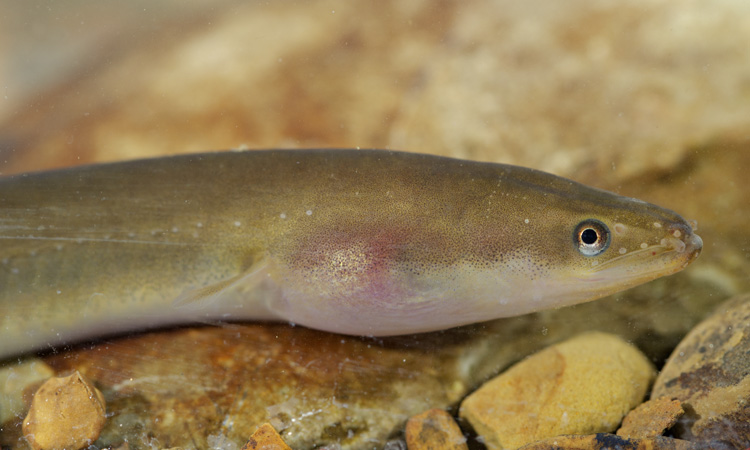Endangered species found on Hong Kong supermarket shelves
- Like
- Digg
- Del
- Tumblr
- VKontakte
- Buffer
- Love This
- Odnoklassniki
- Meneame
- Blogger
- Amazon
- Yahoo Mail
- Gmail
- AOL
- Newsvine
- HackerNews
- Evernote
- MySpace
- Mail.ru
- Viadeo
- Line
- Comments
- Yummly
- SMS
- Viber
- Telegram
- Subscribe
- Skype
- Facebook Messenger
- Kakao
- LiveJournal
- Yammer
- Edgar
- Fintel
- Mix
- Instapaper
- Copy Link
Posted: 9 March 2020 | Sam Mehmet (New Food) | No comments yet
Researchers from the University of Hong Kong discovered that the endangered European eel (Anguilla anguilla) was found in products on 50 percent of surveyed supermarket shelves in Hong Kong.


A team from the University of Hong Kong, Division of Ecology and Biodiversity, has discovered endangered species being sold on Hong Kong supermarket shelves. The team, led by Dr David Baker from the University’s Conservation Forensics laboratory, recently published results from an investigation into European eel products on sale in Hong Kong supermarkets.
The study found that nearly 50 percent of retail eel products, ranging from fillets to snack items from grocers and convenience stores, contained a critically endangered species of fish. According to the International Union for Conservation of Nature (IUCN), the European eel (Anguilla anguilla) is at risk of extinction. For this reason, trade in European eels and their food product derivatives is subject to international regulation under the Convention for the International Trade of Endangered Species (CITES). CITES is meant to ensure that permits are required for their import and export in an effort to regulate trade and foster conservation.
Eel, extremely popular in East Asia and particularly Japan, has traditionally been fished from East Asian populations of the Japanese eel (Anguilla japonica). However, overexploitation due to growing demand from Mainland China and a combination of threats ranging from rising ocean temperatures, parasites, and dammed rivers have reportedly led to dramatic declines in eel populations.


Retail eel products found in local grocers, convenient stores and supermarkets.
Credit: The University of Hong Kong
To satisfy demand for eel in East Asia, juvenile eels (known as glass eels) are caught while swimming upstream in their native range spanning Europe and North Africa, and smuggled to Asia to be raised to maturity, according to the researchers.
“The illegal export of glass eels from Europe to Asia has now been recognised as one of the world’s greatest wildlife crimes and Europol has estimated the scale of over 300 million eels (2018 data) annually. The next step is to investigate the global consumer markets to identify where these trafficked eels are eventually consumed. The numbers from Hong Kong are very alarming and reflect the huge amounts of European eels that are being farmed in Asia. It is now up to individual countries to investigate the scale of European eels entering their national food chains illegally,” said Florian Stein, Sustainable Eel Group.
One kilogram of glass eels can contain up to 3,500 individuals and has been recorded selling for over HKD $50,000 on the black market. This highly profitable trade has reportedly attracted the attention of international criminal syndicates, who smuggle glass eels in suitcases from Europe to Asia for resale. In their juvenile stages, eels are extremely difficult to identify to the species level. The two most common cousins of the endangered European eel (the Japanese and American eel) are not listed in CITES, therefore no permit is required for their trade. Because of the challenges in visual identification, endangered European eels can be laundered along with their legally traded relatives, the researchers explained.
Originally conceived as an undergraduate project looking at seafood mislabelling, the investigation into European eel took off when students noticed a surprising amount of European eel present in supermarket products.
The study covered a wide range of Hong Kong supermarkets and convenience stores across all districts. Almost 50 percent of the eel products surveyed were determined to be European eel. The results from this study suggested that large scale smuggling networks trafficking European eels are interwoven with local supplier chains, resulting in endangered species ending up on supermarket shelves, totally unbeknown to consumers.
Related topics
Food Fraud, Regulation & Legislation, Research & development, Supply chain
Related organisations
International Union for Conservation of Nature (IUCN), Sustainable Eel Group, University of Hong Kong









